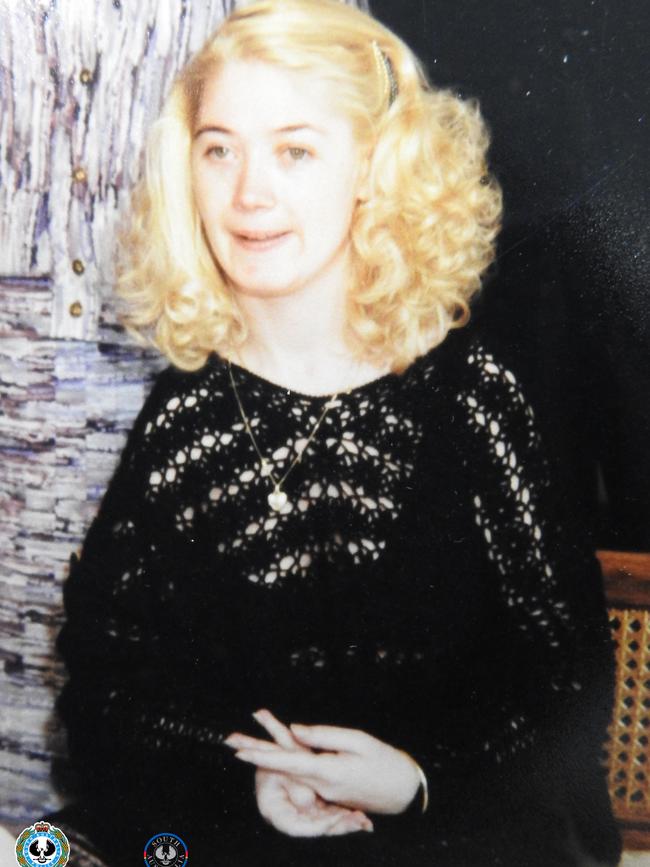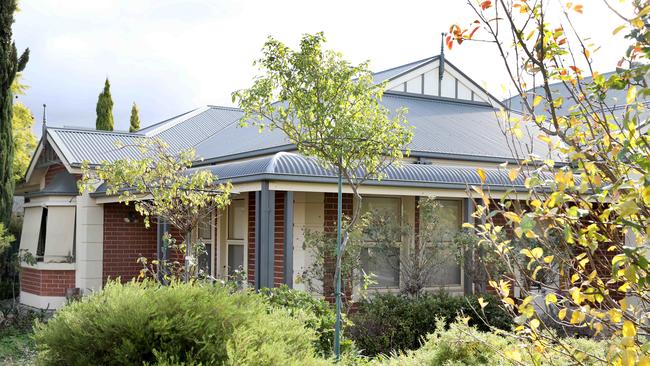Tragic death of Ann Marie Smith raises serious questions about the system looking after our disabled
Ann Marie Smith’s life was lonely and isolated, her death horrific and degrading. This week’s shocking revelations have bureaucrats scrambling for answers, and our community struggling to honour her memory.
SA News
Don't miss out on the headlines from SA News. Followed categories will be added to My News.
- Neighbours shocked by Ann Marie Smith’s ‘horrible’ death
- Minister says her carer worked without official clearance
Ann Marie Smith died an awful, lonely death.
Found by paramedics stuck to a woven-cane chair in her Kensington Park home, the 54-year-old with cerebral palsy lasted less than 24 hours before succumbing to malnutrition, pressure sores, septic shock and multi-organ failure.
How she became so ill while in the care of a government-funded disability service provider is now the subject of several official inquiries by state and federal agencies.

Among those investigating how Ms Smith was left for over a year in a chair, which also served as her toilet, with no fridge or accessible food, are detectives from the Major Crime Investigation Branch. They are examining the care provided to her by a worker employed by a private company, Integrity Care SA, under the NDIS.
A parliamentary committee this week heard that carer, Hectorville woman Rosemary Maione, only applied for a Department of Human Services screening check nine days after Ms Smith died in the Royal Adelaide Hospital on April 6.
The department’s chief executive, Lois Boswell, revealed the clearance had been approved despite Mrs Maione being banned in 2013 from working as a carer by government agency Domiciliary Care SA after a family accused her of stealing money from a relative. Mrs Maione’s lawyer has denied there was a ban.
Ms Boswell also revealed the clearance – paid for by Integrity Care SA – was revoked after she and Human Services Minister Michelle Lensink learnt for the first time about Ms Smith’s death on May 15. This was more than one month after SA Police, SA Health and the Health and Community Complaints Authority were notified by the SA Ambulance Service.
Why Ms Boswell, her department and Ms Lensink did not know about the death while other agencies already were working to determine what had gone so terribly wrong has become the focus of an intense campaign by the State Opposition to expose serious systemic faults, particularly reporting responsibilities.
During questioning by Budget and Finance Committee chairman Kyam Maher, Ms Boswell said her department – which has responsibility for people living with disability while SA Health has oversight for the mentally ill – was not told about the death of Ms Smith by its sister agency. Ms Boswell said she found out when police declared a major crime investigation 39 days later.
“There appears to be no record of the department being informed of the death of Ann Marie Smith prior to (Friday) May 15,” she said.
Asked what she had done to obtain more information, Ms Boswell said staff were paid overtime to search State Records over a weekend to find Ms Smith’s files while she was under state care before being transferred to the NDIS in 2018.
Ms Boswell said she also sent a text message to Health and Community Services Complaints Commissioner Grant Davies, who said he had been notified on April 9 – and had told the Federal Government because Ms Smith was an NDIS client. Asked if she told Ms Lensink about Mr Davies knowing about the death and not notifying her, Ms Boswell said she could not remember.
“I don’t recall whether or not I specifically informed the minister, but I found out from the media that he had been advised and I asked for information about what he knew. That was it,” she said.
Asked what other agencies or individuals she contacted to find out more about Ms Smith’s case such as Public Advocate Anne Gale, who has independent oversight of the mentally ill and disabled, Ms Boswell said she had no other discussions.

Mrs Gale, who is also the acting Principal Community Visitor, said her office had received an email on April 8 from an ambulance officer wanting to report Ms Smith’s death.
The officer was told to notify police. Mrs Gale then decided on April 9 to separately report the death to the Adult Safeguarding Unit within SA Health and SAPOL’s Public Protection Branch, which replied one week later, saying the matter was in the hands of the Deputy Coroner and the Serious Crimes Investigation Branch. The next week, she notified the federal watchdog for the NDIS, believing it was a federal – not state – matter to investigate.
At no time did she tell Ms Boswell, who said the mechanisms for managing the 30,000 South Australians on the NDIS – such as Ms Smith – needed to be clarified to avoid similar tragedies.
“There have clearly been safeguarding failures for Ann Marie, and these may have occurred over a number of years,” she said. “It is critical we work to identify any systemic failures and make sure that they don’t happen again.
“We owe her and other vulnerable people this, but it can only be done properly through a real examination of facts and with only one objective: to make a better system so that people with disabilities are safeguarded from horrors like this.”

